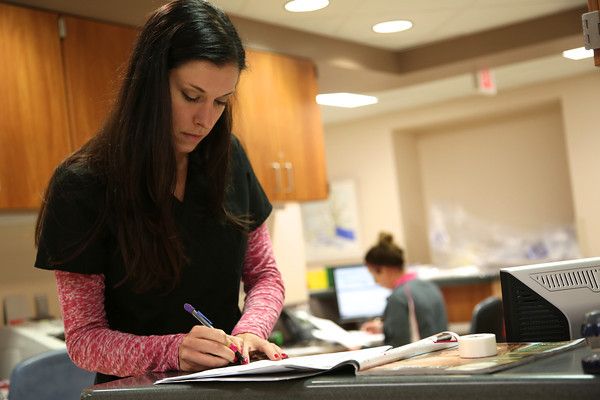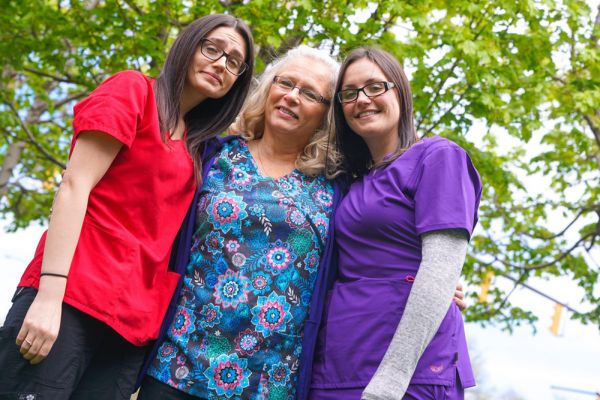Nurses play an important role in clinical research
When you think of clinical research, you may picture doctors and scientists collecting data or patients trying new treatment regimens. However, some very important people are missing from this picture: clinical research nurses.
Clinical research nurses work closely with our principal investigators (PIs) — the physicians who lead clinical trials — to design and deliver new approaches of care in our clinical research settings. These nurses perform many of the same duties as other nurses, such as providing hands-on care to patients, administering medications and maintaining records, but they have additional, vital responsibilities.
Patients who enter clinical trials are often treated with drugs and procedures that may have side effects or risks still being studied by the clinical research team. So clinical research nurses must serve as the eyes and ears of clinical research, observing and assessing patients carefully. Sometimes they see things for the first time and must draw on their knowledge and experience to manage different side effects.
A clinical research nurse’s duty starts well before a patient comes in. They must know the clinical trials inside and out and be prepared for whatever care might be involved. This is done through ongoing research and specialized training.
By understanding clinical trial protocols (the rules of how and why it will be conducted), clinical research nurses serve as important sources of information for their patients. They can share what symptoms to look for and tips on when to seek additional medical advice.
For example, some of the drugs that we’re now using change and regulate the immune system. A patient may develop symptoms that they might otherwise dismiss as a cold, but those symptoms could be a sign of something much more serious. Nurses are always watching for those symptoms and alerting patients about what to look out for.
As with all nursing specialties, there are many rewarding aspects of working with patients enrolled in clinical studies. I think most clinical nurses would agree that it can be an incredible experience to work with many of these patients, who, in an effort to help future patients, participate in these therapies with the hope of making a difference.
Training the next generation of clinical research nurses
I also will be involved in a study this summer, leading a group of three undergraduate nursing students as part of our Summer Research Experience Programs in Cancer Sciences and Oncology, which aims to encourage students at different stages of their education to consider careers in oncology and cancer research. The program is designed to address cancer research and oncology workforce needs and to prepare the cancer workforce of the future.
After a competitive application process, three students were selected for this summer’s research experience. They have just completed their junior year of a Bachelor of Science in Nursing (BSN) program and will learn about the research process from start to finish, including concept, study initiation, and analyzing and publishing the results. They plan to evaluate such topics as temperature measurement in cancer inpatients; the use of virtual reality to decrease anxiety during chemotherapy; and moral distress in oncology nurses.
I have so much respect for all of our clinical research nurses and applaud the invaluable work they do.



